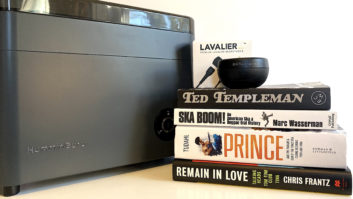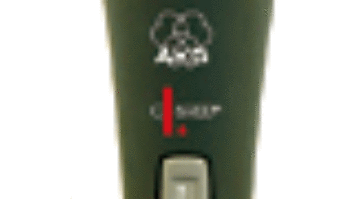The rise of computers has been meteoric. Moore’s Law has pretty much held firm, processors went from one core to many, software has become increasingly sophisticated, and the fidelity of audio interfaces has progressed to the point where “budget” interfaces out-spec the top-ofthe- line models from not that long ago. Nonetheless, there are some signs of speed bumps in the (so far) smooth road of progress.

Before identifying these, though, consider that we might actually be dealing with a good thing. Just as rewind time with tape recorders allowed vocalists to gather their thoughts before doing another take, a chance for all of us to consolidate our past gains could be very helpful in laying a framework for the future. Constant rolling with the technological punches may mean ever-improving performance, but the price is a continuous state of flux that can interfere with productivity. So, let’s look at the potential speed bumps, and see how they could work to our advantage.
The slow adoption of Thunderbolt— Thunderbolt is indeed a very promising way to move data around, but unless you’re into intensive video work, FireWire and USB 2.0 are perfectly adequate for most recording applications. Thunderbolt is also relatively expensive and with Apple having limited exclusivity, the marketplace isn’t sure whether the cost of conversion and implementation is worth it right now.
While fans of high performance might bemoan the lack of Thunderbolt-ready gear, the upside is that both FireWire and USB won’t be going anywhere for a while. Granted, FireWire is fading (try to find a laptop with FireWire, let alone an ExpressCard slot for running a FireWire adapter), but you’ll get at least another year out of the hardware you already have. Besides, USB 3.0 is serving its intended role in the logical evolution of USB, which continues to enjoy huge success in the consumer sector.
The hard drive shortage— The floods in Thailand have not only impacted hard-drive production, but the motors used in hard drives. This shortage is predicted to last into 2012, and prices will be somewhat elevated as companies replenish supplies. So, now’s the time to weed out your data, back up data to your DVD-ROM or Blu-Ray optical drives, and dust off all those older, smaller hard drives scattered around older computers and use them to offload some of your lesser-used files. External drive enclosures are cheap, plentiful and can hold you over until the shortage abates (just remember to spin up any hard drive periodically to keep spindles from freezing).
The changing nature of software— As pointed out in my November column, software has gone through some serious price erosion— good for consumers, not so good for developers. While we’ll continue to see plenty of cool new programs (particularly audio plugins and virtual instruments, as they can accessorize and add value to existing programs), I don’t sense pro audio people wanting software with more features: They want what they have to be rock-solid, and with any loose ends cleaned up. Just about any program would benefit from better notation, or beat detection algorithms; a technological holding pattern that stabilizes platforms may well mean software developers will be less preoccupied with having to accommodate new operating systems and hardware, and can turn their attention to improving what already exists. Even though software users expect free “performance” updates, I’d bet they’d be willing to pay for significant improvements in stability and efficiency.
The splintering of computing— The desktop is no longer king, but more like that figurehead ruler who’s kept around after a country has a peaceful revolution and deposed a monarchy. It’s not so much that desktops have disappeared, but that as computing platforms, they occupy a smaller slice of the overall pie. The trend started when laptops morphed into desktop replacements, but now there are people for whom an iPad is really all they need (and that’s really just the first successful tablet, so who knows where that trend will lead?). As audio pros, we need powerful desktops and laptops, but as companies chase the Holy Grail of consumer dollars, they seem less interested in a rapid development pace for desktop computers that are already extremely powerful. The bottom line is that, like FireWire and USB hardware, you’ll likely get at least another year out of your desktop without feeling like you’re missing out on anything.
Of course, the 800-pound gorilla in the room is the worsening economic situation. But we haven’t hit a “Mad Max” scenario yet, and the world keeps spinning, albeit at a slower pace. Besides, music is about tension and release. It won’t hurt to have a little vacation from tension, as well as some time to spend on release.
Craig Anderton is executive editor of Electronic Musician magazine, and editor in chief of harmonycentral.com.






